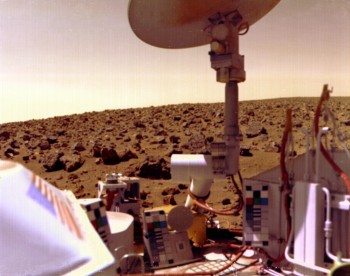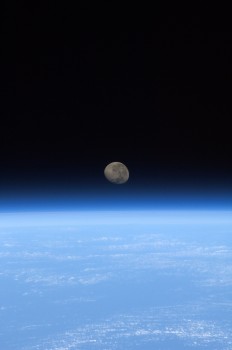When the American Viking probe landed on Mars it was attempting to find if there was water on Mars. It did not find any water. It wasn’t until 2008 that the Phoenix lander finally proved that water-ice exists below the surface of Mars. Today we know that if the Viking probe had delved just a few centimetres deeper it would probably have found water.
This story tells us that robots are indispensable in space but they do have their limits. Imagine if an astronaut had been digging for water and noticed that the soil started to change colour. Naturally the astronaut would dig a little further. Humans are intuitive and curious beings. We can react quickly to the unexpected. Machines have a hard time in these situations.
Robotics and human spaceflight is not a matter of either/or. We need both. In May 2014 I will fly to the International Space Station as European Space Agency astronaut. Many of the experiments that we will conduct up there would not be possible without astronauts. For example we research diseases such as osteoporosis in the European Columbus laboratory. Weightlessness leads to bone loss similar to sufferers of osteoporosis on Earth. In space we can test ways to counteract this bone loss.
Another example is research on strokes. In space we can explore how our brains cope when sensory elements fail us. Our sense of balance is useless in weightlessness. The changes can be compared to patients who have suffered a stroke and the brain has to continue functioning by taking over the function of a failed region.
Europeans pay around 10 Euros per person per year for spaceflight, around the same price as a cinema ticket. One Euro of this goes to human spaceflight and the International Space Station. In return we get satellite navigation, telecommunications, weather reports, climate studies, international cooperation and inspiration for the next generation of brilliant scientists and engineers. For every Euro we invest in space we get five back on average.
But it would be short-sighted to value human spaceflight on the basis of short-term practical yield. The main reason we fly to space is that we are a curious species of explorers. For the first time in our million-year history we are capable of leaving our planet. This age of human spaceflight will forever stay in our historic memory. As long as people exist we will continue going into space. We must and will explore our surroundings to survive. At the end of the day, although robots will help us in that endeavour, we can only proceed successfully by using a human perspective. More precious than the dust and rocks astronauts brought back from the Moon 40 years ago are their experiences and impressions.
Seeing another celestial body up close with our own eyes and looking back at our fragile planet is priceless. That adds meaning to spaceflight. Had a robot climbed Mount Everest first, we would have been indifferent because a robot cannot tell you how it feels up there.
This blog entry was translated from Alexander Gerst’s original text in German.






Discussion: 2 comments
I’m a brazilian aeroespace engineering student, and what motivates me trough this (everything but easy) area isn’t the money neither the status of being as engineer in the future. What motivates me is the feeling of discovery when studying orbital mechanics or spacecraft propulsion, for me there is nothing better than feel that I’m contributing for science, for something greater than me. I’m motivated by this endless curiosity that all of us, humans, have.
I couldn’t agree more to what Marcelo says. Science for money isn’t getting us anywhere. It’s curiosity that brings us further as humans.